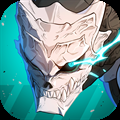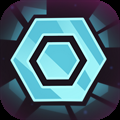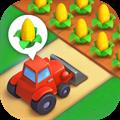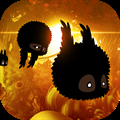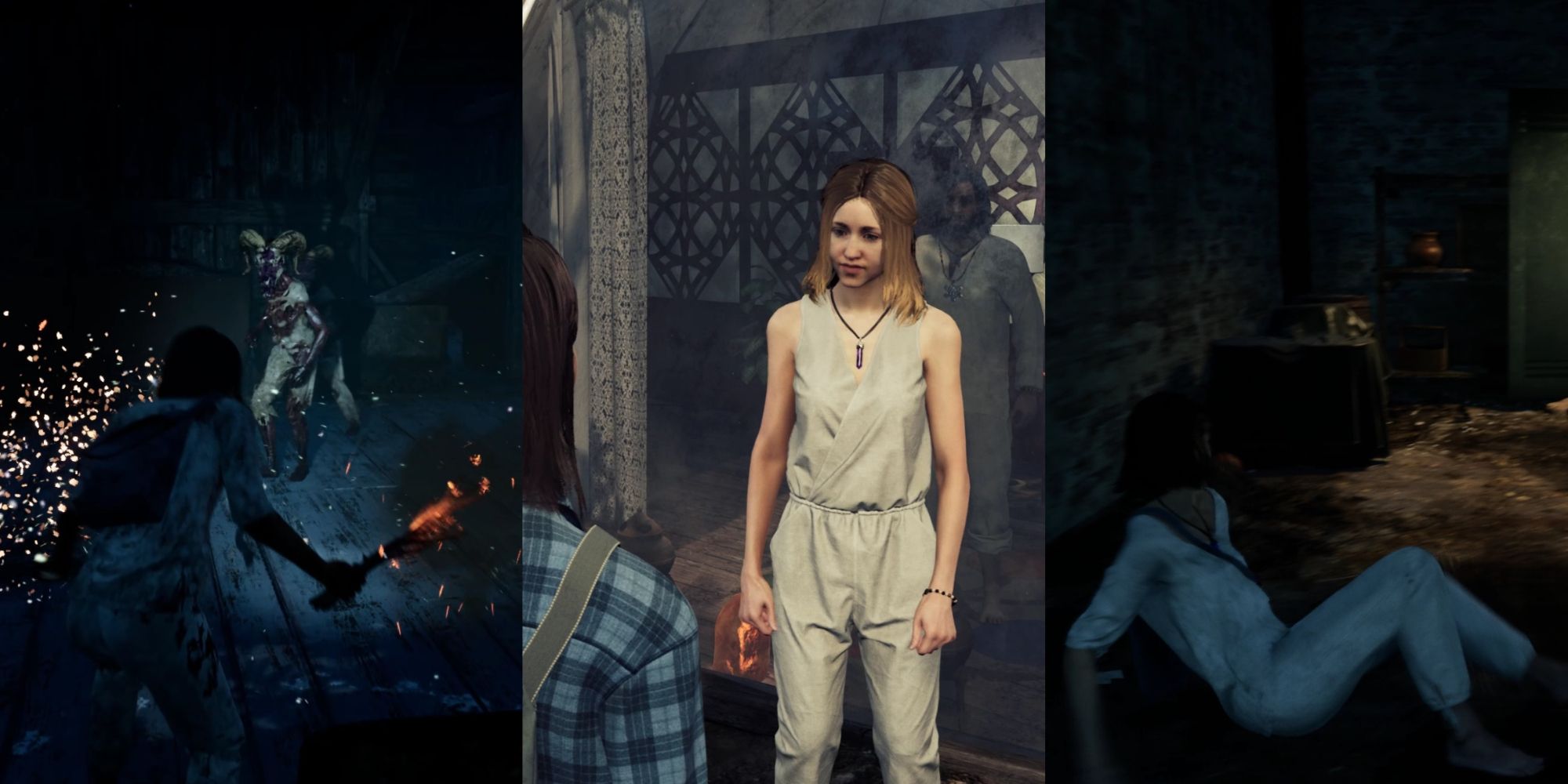
Survival horror game The Chant puts you in the shoes of Jess, who reconnects with her friend Kim in what is very definitely a cult situation. However, you’re not given much time to unpack that when things go from bad to worse — you find yourself trapped on an island filled with monsters, and the people you’re with… don’t handle it well.
Related: Games To Play If You Like The Chant
As the protagonist, you’re tasked with trying to bring everyone together, surviving the horrors of the island– physical, psychological and spiritual, and living long enough to get back home. If you want to increase your chances of survival, here are some things you should know before starting The Chant.
7 Sometimes, It’s Better To Run Than Fight
The Chant has a whole host of horrors to send after you, from various flavors of animal-themed cultists to mutated animals to more esoteric beasties. But true to any survival horror game, flight is just as valid an option as fight. In fact, very few fights in the game are mandatory, and with some quick thinking, good dodging, and little foresight, you can grab whatever you need and then beeline for the exit, where the monster might not even follow you.
This is great when you’re low on resources or if you want to save some for future, inevitable battles. In general, the only monsters you should stick around to kill as a rule are the wall-mounted Mandacores, since killing them alters the area in significant ways. Also, monster kills give Body XP, so try not to skip every fight.
6 It’s Not Worth It To Fight Angie
One fight almost always worth skipping is the fly swarm apparition of Angie that stalks you a few times in the game. While she doesn’t take too many hits to down, she does major damage to your Mind if she lands a hit, needing only two or three hits to send you to the game over screen. Even if you can defeat her, victory will be short-lived. Doing so only causes the cloud of flies to dissipate, reforming to harass you after a few minutes, and worse yet, there’s no reward for doing so.
Related: The Best Indie Games Of All Time
It’s a net loss overall, since you’ll have expended some weapon uses to send her away. Angie is slow enough that you can simply outpace her and do your goals around her. Even if she gets near, her attacks are obviously telegraphed. Also, you can cause her to temporarily despawn by running to certain marked areas where she cannot enter.
5 Shove Does Some Damage
Shove might seem like a last-resort offensive capability, akin to the survival knife in Resident Evil, but it’s actually pretty strong for what it is. The move allows you to shove enemies away, giving you some breathing room to maneuver around or even an opening to run away.
It also does some damage. While it doesn’t hurt as much as hitting an enemy with a weapon — especially if you hit them with the correct weapon — you can still get kills with the move, which is great if you want to save your weapons for other fights. Shove has some decent hit stun, so you can mix it in with your weapon attacks for some combo hits. If you feel especially confident against certain enemy types, you can even just shove them to death. Though this can be time-consuming, you’ll save on weapon crafting resources in return.
4 Dodge Direction Matters
An important thing to keep in mind is that dodging is an omnidirectional action, defaulting to dodging backwards if you don’t pair a dodge input with a direction. This is important to keep in mind because certain enemy attacks can only be effectively dodged if you dodge the right way, like dodging backwards for wide sweeping attacks or sideways for head-on charges.
Related: Games That John Carpenter Should Make Into Movies
Reading the bestiary entries in the research menu (not just the lore in the world) will often tell you the correct way to dodge certain attacks on top of enemy weaknesses. This isn’t always the case, though, especially with the variations on cultist enemies. You’ll want to study enemy attack patterns as well to find the best way to avoid hits.
3 Desperate Dodge: Not As Desperate As It Sounds
Early on, you learn how to do a Desperate Dodge, which is a double-tap on the dodge input which gives you much more invincibility frames at the cost of putting you on the ground and having to recover to a standing position.
Except, enemies rarely take an opportunity to follow up and hit you when you’re done, especially in one-on-one fights. So most of the time, the only drawback is a bit of a delay to getting back on the offensive, which, unless you’re speedrunning, doesn’t affect much. If you’re not sure how to dodge a new attack, a safe bet is to Desperate Dodge in a direction, since some attacks can only be dodged by a Desperate Dodge anyways.
2 Don’t Be Shy About Using Resources
Resource management is an important skill in most survival horror games: balancing your need to stay alive in the moment versus having enough resources to survive future fights. While this is also true in The Chant, the game is a little less strict about the need to ration. While you don’t want to just burn through your resources, you shouldn’t be too conservative with them either.
Weapon crafting resources are common enough that there’s no reason to not just have weapons at the ready, especially if you don’t fight everything on the island. While restoratives for your Mind, Body, and Spirit are less common, there’s still enough that you should consider topping off instead of running around with low health or sanity. In fact, the game encourages this, given your limited space for restoratives, and the fact using restoratives gives you XP to the relevant stat.
1 Your Ending Is Based On Your Decisions
The Chant has multiple endings, and the system for getting them is relatively simple. Each ending is tied to your three primary stats, Mind, Body, and Spirit, with your ending being whichever stat total is highest after you beat the final boss.
The game tells you in what ways you can raise each stat, but the simplest way to influence them is to answer in specific ways during dialogue choices, which are also all tied to a specific stat. Choices in dialogue will give three points towards the associated stat, whereas other relevant actions like reading lore (Mind), killing Cultists (Body), or killing Gloom creatures (Spirit) give only one point per instance.
Next: The Best Horror Games From The 2000s






